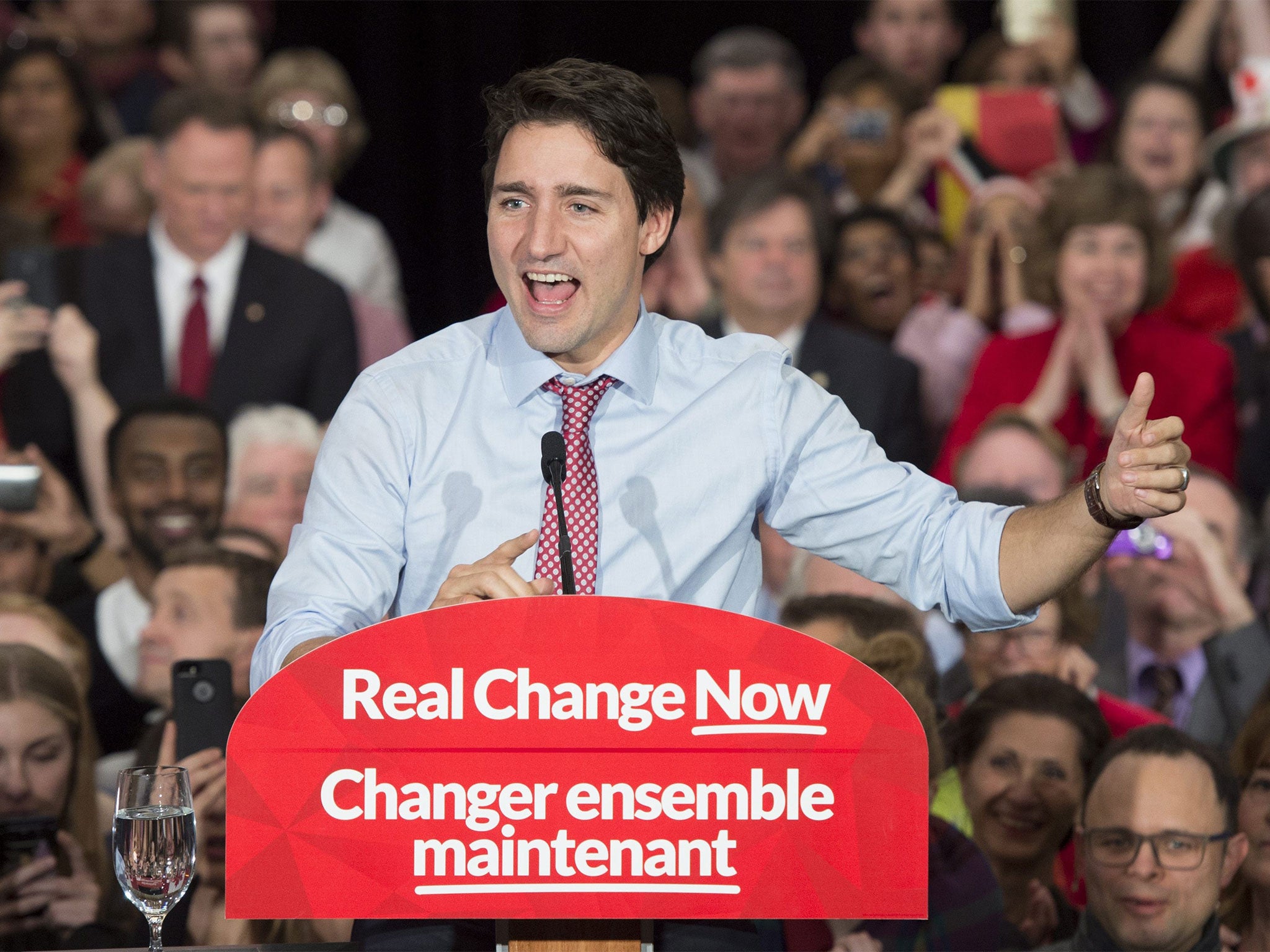Why it's different when women objectify men like Canada's Prime Minister Trudeau
It’s not threatening or dangerous when women do it because we’re not in a position of physical power, and our words reflect that


Call me a hypocrite, lambast me for being a sanctimonious feminist if you will (and there are those that will anyway, without reading further than the headline) but I believe in transparency, and I’m going to have to make a confession: when I saw photos of Canada’s PM-designate Justin Trudeau, I swooned.
I scrolled through multiple images of his long, flowing locks, witnessed him marching in a gay pride parade, held my breath through those topless boxing poses and sighed openly after reading about his pro-abortion, feminist, climate change-supporting, liberal credentials. But it was mostly the boxing shots. And that hair.
At which point, I gave myself a slap on the wrist – we’re not in the cinema watching Ryan Gosling getting his white mechanic’s T-shirt dirty with grease in Drive now, I said. We’re not playing a pub game of ‘Who’s the sexiest world leader?’; engaging in idle, canteen ‘which MP would you snog/marry/avoid’ chat; or cackling while branding Trudeau a ‘PILF’ (‘Prime Minister I’d like to fuck’, obviously). We can’t, because it’s always, always wrong to objectify men or women, with absolutely no exceptions. Isn’t it?
It’s something I’ve had to consider, as the “militant feminist” I’m so often accused of being (on Twitter, at least: the bully’s virtual playground). In recent weeks I’ve been unwittingly drawn into one-sided discussions about misogyny that have left me seething with indignation, as strangers argued whether my online ‘handle’ (@nakedvix, to be completely upfront – a private joke leftover from my student days that didn’t seem that big a deal when joining the site in 2009, before Twitter became the personality portfolio it is today) renders me “deserving” of comments on my appearance.
For, just like Charlotte Proudman, the barrister who ‘shamed’ an older, male solicitor who contacted her on LinkedIn to tell her how attractive he found her, I too received an unsolicited message from a man, telling me he felt “compelled” to tell me what he thought about the way I look, like he had no control, as if it was a life-or-death instruction.
“Huh – says the lady with @nakedvix as her Twitter name,” one said when I brought this up, definitively refuting my right to feel startled and aggrieved. “I'm just saying if you have a Twitter name like that on a 'social media' site then expect comments on appearance,” another chipped in, not realising that he was echoing the type of arguments given by rape apologists, by those who subscribe to "wear a short skirt and you're asking for it" excuses.
I paced up and down at my desk, giddy with outrage, as men I’d never met went on to denounce the entire feminist movement with: “Are guys not allowed to comment positively on a woman's appearance in a social setting anymore?”; the facetious: “Men shouldn't compliment women. We shouldn't look or interact with them at all”; and the downright stupid: “Feminism is a hate movement. If you are a feminist and you don't like that reputation, too bad.”
So why, then, if we’re so committed to equality, to judging people on virtue rather than appearance, do we still fall prey to the basest of reactions, such as my rather visceral response to virtuous, dreamy Prime Minister Trudeau? And does it matter?
The answer might lie in language itself. I conducted a straw poll around the office, asking colleagues to tell me what they felt were the crudest ways to describe people by appearance alone. “Bitch, slut, whore,” were some of those we had all heard first-hand for women. “Fit, hot, buff,” were the best we could come up with for men. Perhaps it’s not threatening or dangerous when women do it, because (with exceptions), we’re not in a position of physical power, and our words reflect that.
Caitlin Moran put it perfectly in her column for the Times recently, when she said that one of the things men need to understand about women is: “We just walk down any dark street with our keys between our fingers, going, “Please, not tonight. Let me get to my door tonight.” Just last month, while I was walking alone near a park to collect a takeaway at 8pm, a drunk man unzipped his jeans and ran towards me with a shout of, “Oi, bitch, come here!” It turned my blood cold and instinctively made me run. For we live in a world where, for women, syntax itself can be threatening; so-called ‘compliments’ a nod to the power that could be exerted upon us, physically, by men if they so chose to do so.
So yes, it matters. Objectification might feel light-hearted, but it’s not always harmless. And the best thing, it seems to me, is to admit it – but to try and rein it in, to think about what we say before we say it, and to weigh up whether it really needs to be said at all.


Join our commenting forum
Join thought-provoking conversations, follow other Independent readers and see their replies